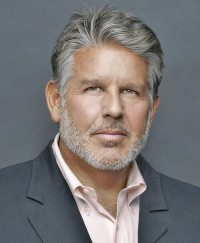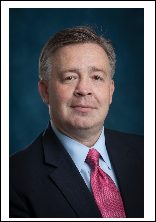Theres a new sheriff in town to police the securities industry. And that man is Jay Clayton.
So, is the fox now going to be guarding the proverbial $7 billion dollar per day equities market henhouse? Some in Congress have said yes but that might not just be the case. A lot hinges on Jay Claytons focus and resultant success.
President Donald Trumps selection of Jay Clayton as Chairman of the Securities and Exchange Commission (SEC) is now a matter of history. But the lingering question on the collective mind of the markets remains – what kind of SEC Commissioner or cop will he actually be? And what will his legacy be?
William Cohan, former senior Wall Street M&A investment banker for 17 years at Lazard Frres & Co., Merrill Lynch and JPMorganChase and a New York Times bestselling author, said that as far as Claytons credentials, his background in M&A means he understands Wall Street, finance and capital structures. Not a bad place to start.

He may not understand trading quite as well, but he understands all the documents that need to be filed. Its a good background, Cohan said. My concerns are not with his knowledge, but with his dedication to the job – his inclination to do the job – that needs to be done.
And that seems to be the early sentiment on Clayton, as one major private execution-only broker said that the firm views his candidacy as a solid choice and that Clayton has a good grasp of important industry issues.
But Cohan isnt so sure.
What Does the Chairman Actually Do?
What does an SEC head do? Part of it is simply, of course, What the President wants him to do, how much or how little does the President want the rules enforced, Cohan said. The problem has been that regardless of who the President has been for 10-15 years, Bush or Obama, the appointee has been milquetoast, ineffectual and has not gotten the job done that needed to get done, in terms of monitoring Wall Street before the crisis, and prosecuting bad behavior during and after the crisis.
He added what the market really needs the SEC to do is make sure Wall Street doesnt misbehave, and to hold it accountable when it does. Since about 2004, he reminds that the SEC Chairs and the heads of enforcement have been professionals revolving between Wall Street and Washington.
Simply put, the biggest issue is the SECs reputation, i.e. who does it work for? Wall Street or the American people? Unfortunately, I dont think Jay Clayton will be working for the American people; hell be working for his friends and former colleagues on the Street. But I hope I am wrong.
To recap, Clayton fared well in his confirmation hearings with the Senate Banking Committee in March. While the topic of market structure, most important to the equities market, was not front and center, he did express support for a review of access fees, one of the recommendations proposed by the SECs Equity Market Structure Advisory Committee (EMSAC). Clayton, in testimony, promised foremost to police Wall Street without showing “favoritism to anyone” even as he faced questions about how his history representing big banks will force him to recuse himself from key matters.
“I am 100% committed to rooting out any fraud and shady practices in our financial system,” Clayton told the U.S. Senate Banking Committee during the confirmation hearings.
But still, some saw this answer as insufficient as Clayton, a star Wall Street lawyer whose wife also works at Goldman Sachs (GS), as not enough. He continued in his testimony to tell his inquisitors that there’s “zero room for bad actors.”
If confirmed, I will take up this responsibility with energy and purpose. I pledge to work with my fellow Commissioners, the SEC Staff, this Committee, and the many others who support and defend our capital markets, he assured the Committee during his vetting.
Government ethics rules require Clayton to sit out enforcement votes during his first two years in office on matters involving former clients of his such as Goldman Sachs and Deutsche Bank. Clayton also cannot get involved in any cases where hiss private sector alma mater, Sullivan & Cromwell, is involved.
And the government, aware of his Wall Street pedigree and clientele, which reads like a whos who of Wall Street, including Volkswage, which pled guilty to criminal charges over emissions testing, drug maker Valean and Deutsche Bank, which has been indicted on its involved in a money laundering scheme.
And of course, theres his profession involvement with Goldman Sachs during the financial crisis and bailout structuring and the Bear Stearns $2 per share liquidation to rival bank JPMorgan.
Things that could make you go, Hmmmm.
And Senator Elizabeth Warren, armed with these facts, accused Clayton saying that he …can’t vote to punish some of the biggest names on Wall Street,” with this type of pedigree and history. Also, recent Presidential contender Senator Bernie Sanders, a huge critic of Wall Street, publicly berated Clayton in a statement that flatly said the nominee is “embodiment of the greed that nearly destroyed the economy.”
“Mr. Clayton has spent his career providing get-out-of-jail free cards to Wall Street executives,” said Sanders.
The Road Ahead
Clayton parried back that the importance of government service was instilled in him from a young age. In his testimony he told Congress that well-functioning capital markets are important to every American and he would uphold this tenet.
All Americans should have the opportunity to participate in, and benefit from, our capital markets on a fair basis, including being provided accurate information about what they are buying when they invest, Clayton said. I am 100 percent committed to rooting out any fraud and shady practices in our financial system. I pledge to you and the American people that I will show no favoritism to anyone.
And he concluded by acknowledging that the U.S. public has indeed lost confidence in the U.S. financial markets and that was an issue he sought to address and rectify, if confirmed, right off the bat.
Translation – market structure woes such as an outdated Reg NMS or Order Protection Rule – would be things hed look at immediately. Making the markets run smoother appear paramount.
In recent years, our markets have faced growing competition from abroad. U.S. – listed IPOs by non-U.S. companies have slowed dramatically. More significantly, it is clear that our public capital markets are less attractive to business than in the past. As a result, investment opportunities for Main Street . investors are more limited, Clayton said. Here, I see meaningful room for improvement. I am excited to work with you, my fellow Commissioners and the SEC staff to pursue those improvements and, in doing so, will always be vigilant to ensure that the Commission is steadfast in protecting investors.
What the market seems to have forgotten is that Jay Clayton, the former powerhouse defender of Wall Street, is not alone in his involvement with these financial goliaths. People forget that former SEC Commissioner Mary Jo White, like Clayton, had dealings with major Wall Street firms in her private practice, to which she has now returned. White represented the likes of UBS and JPMorgan while at Sullivan & Cromwell, and did recuse herself from matters dealing with them.
Calls and Puts
Perhaps, Clayton can assuage market and Congressional concerns and either restore public faith and alleviate concerns is by making one of his first acts as Commissioner appointing a new, tough on crime, head of his enforcement division. This move, and this persons philosophy, could significantly serve the dual mandate of being tough on Wall Street get gain him credibility on The Hill. All this can be achieved, despite the overlooked fact that SEC Chairman rarely has direct influence of these prosecutorial matters. The Chairman, historically, helps set penalties and damage amounts along with his commissioners, not directly prosecutes.
Also, Clayton needs to fill other key positions. Aside from the departure of Andrew Ceresney, former director of SECs division of enforcement, there are the vacancies left by Stephen Luparello, director of SECs division of trading and markets and Wenchi Hu, an associate director in the same division who left in early February.

Shortly before Clayton’s confirmaton, reports surfaced that ITGs Jamie Selway, currently head of execution services, is a potential front runner to head the Trading and Markets division at the U.S. Securities and Exchange Commission, Reuters reported, citing three sources familiar with the matter. While Selway and Clayton both declined to comment on the matter, the two can be seen as complimentary and the equivalent of an Michael Jordan and Scottie Pippen partnership.
Tough guy enforcement chiefs always give instant credibility, but is that enough?, wondered Carl Gilmore, President of Integritas Financial Consulting. In an era of increasing marketplace complexity and potentially shrinking budgets, enforcement has to be risk based and smart. That means that effective enforcement has to contain new efficiencies in addition to brute force.
Gilmore added that the SEC must employ more technology and concentrate on areas of enforcement where the risk is greatest to the investing public and the marketplaces, and thinking about new ways conceptually to protect market participants is key to success.
Another problem Clayton could face and would alter his market perception is what resources will he have at his disposal. Many traders and market structure experts have told Traders Magazine that the SEC is underfunded and lack the human capital resources that it deserves and is needed. In November 2016, then chairman White asked Congress for $445 million more in already approved funding for $1.6 billion dollars. No ruling has been made on this additional request and according to many, there wont be any.
Cohan said that resources have always been a challenge for the regulators – as the Government often likes to spend money elsewhere than policing some of its biggest donors – Wall Street.
There has been talk about cutting the SEC budget for years, and the budgets of all the regulators, Cohan began. We need somebody with the judgment to act independently. I dont think you need much of a budget at all to make a difference. Yes, you need to hire people whose job it is to prosecute and bring enforcement action, and that does cost money. But if you set the tone from the top, start down the path of really doing enforcement as opposed to window-dressing, youll start showing results and 1) your budget will increase as a result or 2) bad behavior will stop from the deterrent effect of the example of your enforcement.



